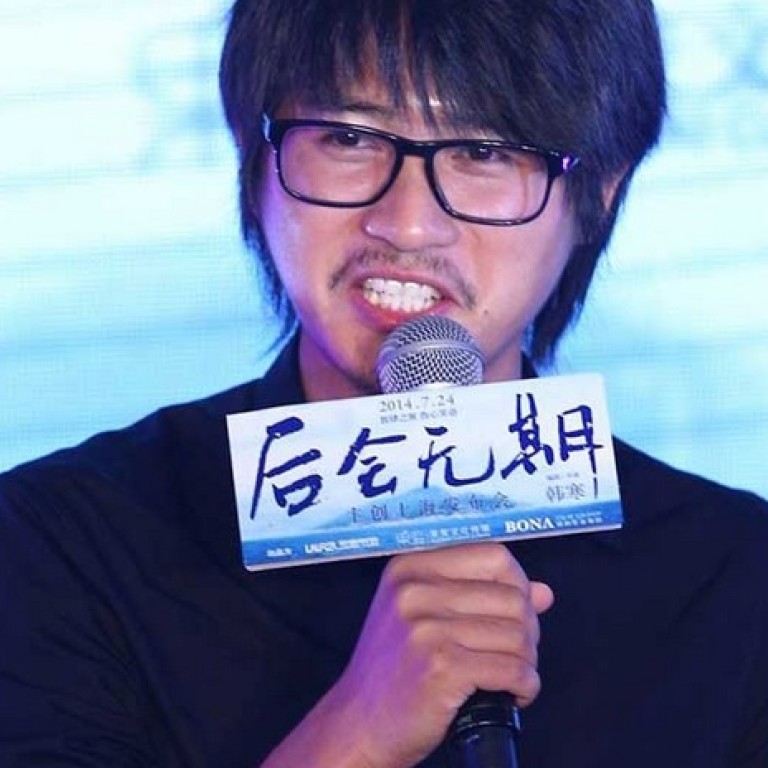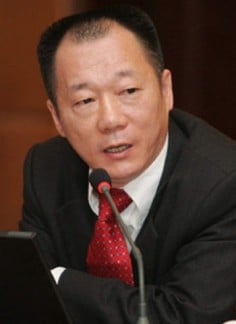
Renewed ghostwriting accusations against Chinese author, director Han Han trigger media storm
An article in state media accusing one of China’s most popular authors of using ghostwriters and plagiarising Hollywood for the plot of his first film has sparked massive debate online.
Novelist Han Han, 31, is one the most outspoken writers of his generation and an idol to China’s youth. He boasts more than 40 million followers on his Weibo microblog account.
The allegations that he uses ghostwriters were published in a op-ed by cultural critic and Tsinghua University professor Xiao Ying, who wrote that “the exposure of ingenious fraud Han Han will be the biggest scandal of the Chinese literary world”.
Xiao also accused Han of plagiarism in the plot of his first film , a road trip comedy written and directed by Han that made 600 million yuan (HK$755.84 million) at the box office within three weeks of its recent release.
Xiao said the plot was “rife with plagiarisms of other films” including Hollywood classics and , as well as hit Chinese romance .
“ is a film whose name falls short of the content, and one that lacks logic or sincerity,” Xiao wrote.

Xiao’s commentary fuelled online debate.
“A literary fraud can have a much worse impact on society than official corruption … If Han is truly not a fraud, he should sue ,” said current affairs commentator Peng Xiaoyun, who supports the public questioning of Han.
Yuan Yi, a culture reporter, questioned Xiao’s radical remarks. “Comments about Han should be better conducted, in an academic way. It ought not to become a personal attack,” Yuan said.
Columnist Zhao Chu said liking Han or not should be a personal choice and questioned why state media would use abusive language in a personal attack on the author.
Other critics asked whether the article was a signal that authorities would start a “cultural cleansing” of “vulgar” sections of the media.
“I have always hoped Han’s critics do so in public,” Li Yong, a journalist-turned author, said. “Official intervention can not be good, no matter what its stance is”.
Xiao on Tuesday said the article was entirely his own idea.
published another commentary several hours after the original critique was widely disseminated on the internet, which denounced Xiao’s allegations as groundless and possibly the subject of libel.
It also blamed Xiao for attacking Han with a “Cultural Revolutionary style”.
Ghostwriting allegations have long dogged Han. Critics have in the past claimed to have found traces of ghostwriting from original manuscripts of his early works, including novel . They also questioned how Han was able to frequently update his blogs while maintaining a busy schedule and public presence.
No direct evidence has been presented to prove the claims, however.
Peony Literary Agency, which represents Han for his works’ foreign rights, said that “there is no foundation to any of the speculation in the press” and added it will continue seeking international platforms for the author.

